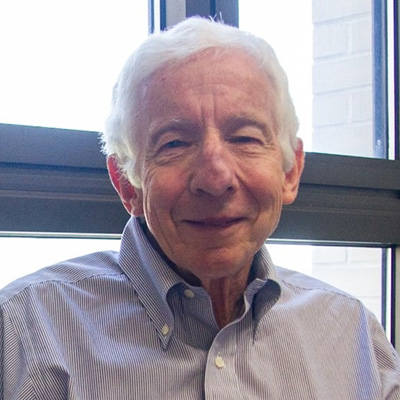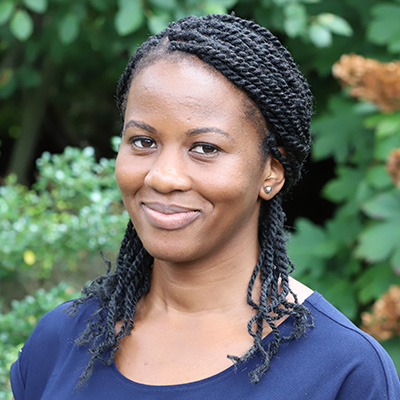Building named for Benkovic; honors for Okafor and Whitney
Building named for Benkovic
The Pennsylvania State Board of Trustees Committee on Finance, Business and Capital Planning plan to rename the Chemistry Building at the University Park campus of Pennsylvania State University in honor of Stephen Benkovic, an American Society for Biochemistry and Molecular Biology member since 1970.

The Chemistry Building houses more than 85 research laboratories and was constructed in 2004.
Tracy Langkilde, dean of the Eberly College of Science at Penn State, said in a press release: “The naming of the Benkovic Building recognizes this extraordinary research impact and the high regard that Penn State holds for Steve and his wife, Pat. They are an incredible team whose legacy is amplified through the trainees they have mentored.”
Benkovic is an Atherton professor and Eberly chair in chemistry in the Eberly College of Science at Penn State. Benkovic was among the first scientists to hypothesize that conformational changes outside the enzyme’s active site were necessary for achieving maximal catalysis. He is also noted for his studies on the T4 replisome and the discovery of the purinosome in purine biosynthesis. He has studied many enzyme systems critical to human biology, contributing fundamental findings to the design of bacterial, fungal, HIV and cancer therapeutics.
Benkovic received the 2009 National Medal of Science from former U.S. President Barack Obama. His many honors include the National Academy of Sciences Award in Chemical Sciences, the American Chemical Society Ralph F. Hirschmann Award in Peptide Chemistry, the Benjamin Franklin Medal in Life Science, the Royal Society Centenary Award, the ASBMB–Merck Award, the American Institute of Chemists Chemical Pioneer Award, the ACS Alfred Bader Award in Bioinorganic or Bioorganic Chemistry and the Pfizer Enzyme Award.
“Pat and I are surprised and deeply humbled,” Benkovic said in the press release. “Together with Pat’s experimental expertise and my excitement to apply chemistry to unsolved problems in biology, we have created a rich legacy of discoveries. Little of this would have been possible without the men and women whom I instructed and mentored that now are in equivalent positions throughout the world.”
Okafor receives Cottrell award
The Research Corporation for Science Advancement has awarded Denise Okafor a 2024 Cottrell Scholar Award. Okafor is one of 19 early-career scholars in chemistry, physics and astronomy to receive the award.

Cottrell Scholars are chosen through a peer-review process of applications from public and private research universities and primarily undergraduate institutions across the U.S. and Canada. The award proposals incorporate both research and science education.
Okafor is an assistant professor of biochemistry and molecular biology as well as chemistry at Pennsylvania State University. Her research uses computational and experimental methods to understand the regulation of nuclear receptors. These receptors play critical roles in metabolism, development, reproduction and other biological processes, which make them attractive therapeutic targets.
Okafor’s previous honors and awards include the Marion Milligan Mason Award, the National Institutes of Health Director’s New Innovator Award, a National Science Foundation Faculty Early Career Development Award and a Burroughs Wellcome Fund Career Award at the Scientific Interface.
Okafor received the Cottrell Scholar Award for her proposal “Allostery and architecture: Building and validating functional models of multidomain receptors.” She will receive a $120,000 prize.
Whitney wins new investigator award
The Canadian Society for Chemistry has honored John Whitney with a new investigator award in biological chemistry. The award goes to a scientist working in Canada who has made significant contributions to biological chemistry or biophysical methods during the early stage of their research career. Whitney will formally accept this award and deliver a special lecture in June at the 2024 Canadian Chemistry Conference and Exhibition.

Whitney is an associate professor of biochemistry and biomedical sciences at McMaster University. The Whitney lab studies the molecular mechanisms that underlie microbe–microbe interactions. His team recently published a study describing a barcode-like system that bacteria use to distinguish between beneficial and toxic molecules.
Whitney has received numerous early-career honors including the Canadian Society for Molecular Biosciences’ New Investigator Award, the American Chemical Society’s Infectious Diseases Young Investigator Award, the Burroughs Wellcome Fund’s Investigators in the Pathogenesis of Infectious Disease Award and the Canadian Society of Microbiologists’ ThermoFisher Award.
“This CSC award is recognition of the importance of studying molecular structures and how they teach us new ways to kill bacteria,” Whitney said in a press release. “It is humbling to have our work acknowledged by the CSC, and I am grateful to the hardworking trainees in my group who conducted the research that led to this recognition.”
Enjoy reading ASBMB Today?
Become a member to receive the print edition four times a year and the digital edition monthly.
Learn moreGet the latest from ASBMB Today
Enter your email address, and we’ll send you a weekly email with recent articles, interviews and more.
Latest in People
People highlights or most popular articles

Embrace your neurodivergence and flourish in college
This guide offers practical advice on setting yourself up for success — learn how to leverage campus resources, work with professors and embrace your strengths.

Survival tools for a neurodivergent brain in academia
Working in academia is hard, and being neurodivergent makes it harder. Here are a few tools that may help, from a Ph.D. student with ADHD.

Quieting the static: Building inclusive STEM classrooms
Christin Monroe, an assistant professor of chemistry at Landmark College, offers practical tips to help educators make their classrooms more accessible to neurodivergent scientists.

Hidden strengths of an autistic scientist
Navigating the world of scientific research as an autistic scientist comes with unique challenges —microaggressions, communication hurdles and the constant pressure to conform to social norms, postbaccalaureate student Taylor Stolberg writes.

Richard Silverman to speak at ASBMB 2025
Richard Silverman and Melissa Moore are the featured speakers at the ASBMB annual meeting to be held April 12-15 in Chicago.

Women’s History Month: Educating and inspiring generations
Through early classroom experiences, undergraduate education and advanced research training, women leaders are shaping a more inclusive and supportive scientific community.
